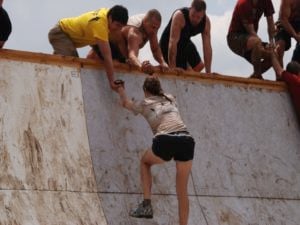How To Build an Effective Team: Fostering Effective Teamwork
How to build an effective team to accomplish your big ideas
Our idea is simple: children everywhere should have access to quality early childhood education. Moreover, there is little doubt that attending a well-run preschool makes a big difference in a person’s success throughout life.

But like a lot of good ideas, the gap between the thought and its implementation can be daunting.
How to build an effective team across distance
As educators in the USA, we know how hard it is to successfully provide early childhood programs. Especially, programs for children ages 3-5 across our nation. Not surprisingly, the challenges get larger as we look to filling this need in a developing country.
We have been fortunate to travel to many out of the way places in the world. We have often volunteered in the educational sector in various countries. Now that we have time for more volunteer work, we have founded a nonprofit organization to bring preschool education to rural Nepal. Early education is not unknown there, but support from the Nepali government is almost nonexistent and community resources are limited at best.
How to build an effective team across cultures
In creating Partners in Sustainable Learning, we launched a comprehensive approach to training women in remote Himalayan villages to become effective early childhood educators. In addition, we provide teacher workshops, instructional materials and classroom furniture. We help communities build classrooms if there is not one in their village. Over the past four years, our efforts have reached 38 villages, 78 teachers and over 800 young children.
But to be successful in this ambitious project, we knew we needed to partner with a Nepali organization. During a volunteer experience in 2008 in Nepal, we worked closely with the staff of Volunteers Initiative Nepal, (VIN). In 2012, we reconnected with VIN and our cross-cultural partnership was born.
From the beginning, we knew that having an excellent working relationship with VIN staff was the key to bringing the best of both cultures to bear in creating a successful project. Here are some of the ways we have created an atmosphere of trust and collaboration across the 10,000 miles and substantially different life experiences separating us.
How to build an effective team: Step #1 - Alignment to a common purpose
We invested considerable time in exploring our mutual values and interests in providing education to young children. Moreover, we compared the goals and long-term vision we each have for our projects. We share as much as we can of our very different worlds, thus, creating a strong relationship that is at the heart of our teamwork.
How to build an effective team: Step #2 - Clear agreements on roles and responsibilities
While VIN staff are well educated in the ways of Western business, they retain a distinctly “South Asian sensibility” that initially contributed to some significant communication gaps. Their conception of time and schedule, in particular, were more than a little different than ours. Therefore, we kept working to understand their perspective and share ours until we came to a mutual agreement of our respective roles and what constitutes reasonable expectations for one another.
How to build an effective team: Step #3 - Coordination, follow up and reporting
Working together, we realized the importance of having an Early Childhood Program Coordinator living in our project community. We agreed on a job description and support structure to help monitor and report on progress on the ground. Furthermore, this collaboration has been key to overcoming some of the communication the challenges posed by distance and culture.
How to build an effective team: Step #4 - Financial controls
Like many developing nations, Nepal is plagued by inadequate infrastructure and endemic corruption. While we have developed a deep trust in our partners, we also know we are helping everyone in the situation by having well defined metrics for tracking how funds are spent. Once again, clear expectations and structural controls have strengthened us as a team.
Celebrate your success once you have determined how to build an effective team!
Finally, we learned very quickly that the Nepalese people love parties and holiday celebrations. We happily engage in having fun together and find ways to share in the success of our partners, teachers and their communities. Finding joy in the hard work we are doing keeps us motivated and engaged.
As we are all abundantly aware, change is coming to all areas of the world at a rapid pace. In our project areas in Nepal, the villagers are rapidly moving from a traditional, rural way of life to something with much more global influence. We believe that strengthening the ability of people to adapt to unprecedented change is one of the key responsibilities of individuals everywhere.
For us to implement successful cross-cultural development programs, we have learned that creating truly functional relationships and a sense of mutual accountability makes all the difference.
Diann Grimm and Dan Schwab live in Richmond, California. Find out more about their nonprofit, Partners in Sustainable Learning, and the projects in Nepal by visiting www.partnersinsustainablelearning.org.

